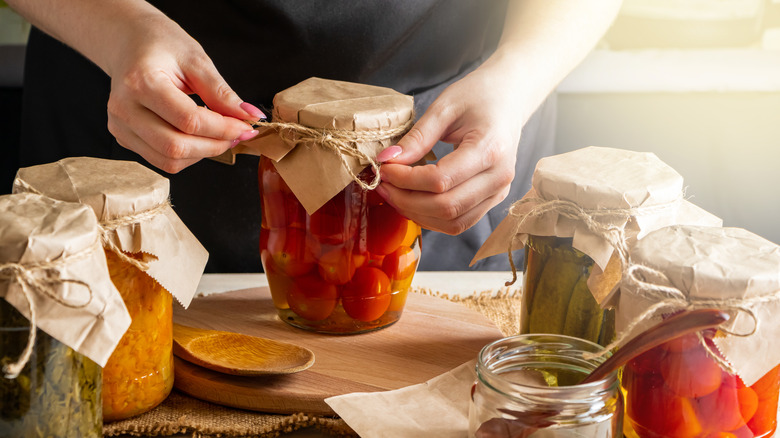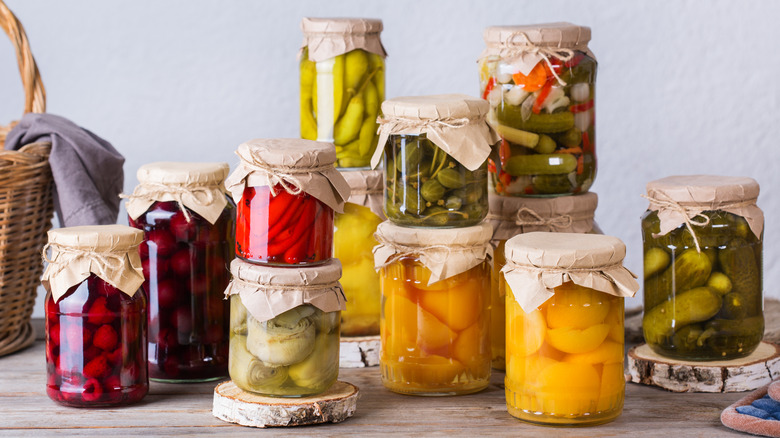Why Experts Just Issued A Warning About Home-Canned Foods
Alarm bells surrounding the potential dangers of improper home canning were rung this week following a tragic botulism-related death. According to KXRO News, a Washington resident died over the weekend as the result of suspected severe botulism infection. Following the death, the local health department removed and disposed of around 170 jars of home-canned food from the home of the deceased.
In the wake of the death, the local Grays Harbor County health department issued a news release urging home cooks to follow proper home canning guidelines in the hopes of preventing future botulism infections and deaths.
According to the CDC, botulism is a serious illness caused by a harmful toxin entering the body's nervous system and attacking the nerves. While uncommon, if contracted, foodborne botulism can have serious health implications, such as blurred vision, trouble breathing, nausea, muscle paralysis, and in serious cases, death (via Mayo Clinic). Symptoms generally begin from 12 hours to 36 hours after eating contaminated food, but could appear up to a few days later depending on how much and how often it is being consumed. Those who exhibit symptoms of botulism poisoning or suspect they have consumed contaminated food should seek medical attention immediately.
Canned goods are one of the most common sources of foodborne botulism, as the Clostridium botulinum bacteria that causes botulism thrives in oxygen-free environments, such as tightly sealed cans and fermentation vessels (via ABC News).
Home canners should adhere to strict guidelines for food presevation
To prevent the development of botulism in canned foods, the CDC guidelines on home canning lay out a number of rules that every home canner should strictly abide by. The first is to carefully follow the USDA Complete Guide to Home Canning's step-by-step safe canning instructions.
Other important guidelines include using the proper equipment and canning method for the type of food you are preserving. For example, low-acid foods (like most vegetables, all meats and fish, and some fruits) require pressure canning, rather than a boiling water canning method. The CDC also urges home canners to get their pressure canner checked prior to canning to ensure that the gauge is accurate.
Any canned, pickled, or preserved food should be stored in a vessel that has been cleaned and sanitized thoroughly before using. Signs that a canned food may be improperly prepared or contaminated with botulism include discolored, moldy, or foul-smelling food; bulging or leaking containers; cracked or damaged containers; and containers that spurt foam or liquid when opened.
If you have any doubt that your preserved food has been properly canned, it's best to play it safe and toss it out. The alternative — consuming potentially contaminated food — could have deadly consequences.

